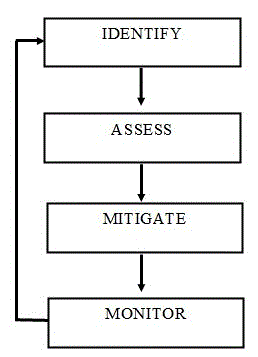Cultural factors can an important reason why companies fail to make a correct assessment of their political risks. Ironically, this may be an area where Western MNCs may actually have an advantage over their Asian counterparts these days.
US companies that enter the China market generally recognise that they are likely to face political and cultural problems of one sort or another. As a result, they make an active attempt to adjust. Some do so more successfully than others, of course, but the important point to note is that they recognise that they are very much on their own. China is so huge and has such a rapidly growing economy that no company can expect Chinese leaders to be swayed very greatly by arguments about the economic benefits brought by any single Western investor.
Some Asian multinationals, on the other hand, appear to assume that they will not face any cultural problems, particularly if they can lay claim to Chinese roots. Many of the early difficulties faced by government-linked Singaporean companies in China in the early 1990s have been traced to this attitude. The first wave of Singapore’s Mandarin speaking ethnic Chinese technocrats to reach China expected to be welcomed almost as cousins. Instead, they were treated by Chinese officials as foreigners, just like everybody else. And while Beijing’s officials probably appreciated the fact that the Singaporeans could speak Chinese (albeit with a “foreign” accent), they were not about to hand out any special privileges. Singapore is well up the learning curve now, having become accustomed to the fact that the Chinese business environment is very different to the Western-style business practices prevailing in Singapore. But this adjustment has only come after a very expensive lesson.
Such missteps are likely to multiply in Asia as intra-regional investment follows growing intra-regional trade. This was evident as far back as the late 1980s, when South Korean textile manufactures were setting up shop in Southeast Asia to take advantage of the low wage costs in these countries. I remember speaking in Jakarta to a South Korean trade representative at the time who told me that he believed South Korean investors had an advantage over their Western counterparts in the country. This, he said, was because both South Koreans and Indonesians were Asians and therefore understood each other better than Westerners ever could. To this day, I still cannot make up my mind whether he was serious or was simply trying to pull the wool over the eyes of what he took to be an ignorant Westerner.
At the time the South Korean official made these comments, South Korean sweatshops in Indonesia were notorious for frequency and violence of the strikes launched by their Indonesian employees. Even Taiwanese manufacturers, whose ethnic Chinese identity could theoretically have made them more vulnerable in a society known to have a strong anti-Chinese bias, were doing better. Western firms, admittedly active in quite different industries, were regarded as the preferred employers.
The bottom line is that if you do not believe your company is likely to face any significant political risks, you will not be prepared to spend time and money studying them, they will not be factored into your strategic thinking, and you will be woefully unprepared when unforeseen political or social events threaten the company’s operations in the country concerned.

